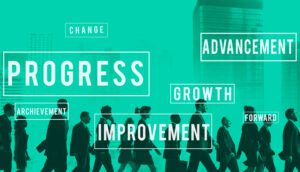
Thinking of making a career in business and accounting? It is an excellent choice as it equips you with essential skills every American business needs: financial analysis, strategic planning, operational oversight, and regulatory navigation, opening diverse opportunities across all industries. Salaries for accountants in the US typically start in the $60,000–$70,000 per year range and can rise well over $130,000 with experience and certification.
Key Takeaways
- Business and accounting roles have some of the lowest rates of unemployment in the US.
- With experience (5 years), financial managers can earn as much as $161,700 per year.
- Business and accounting skills are required in almost all industries.
Is Business and Accounting a Good Career?
Absolutely. American employers highly value this dual skill set. You gain technical expertise in financial management plus strong, broader business insight, positioning you for leadership roles, consulting, or entrepreneurship.
In fact, according to the US Bureau of Labor Statistics, accountants and auditors in the US are projected to see 6% job growth through 2033, outpacing the average for all occupations—and about 130,800 new job openings each year.
8 Compelling Reasons to Start a Business and Accounting Career
1. Exceptional Job Security and Market Demand
The business and accounting career offers remarkable job stability, even during economic uncertainty. The profession consistently experiences a low unemployment rate compared to the national average, making it a reliable choice. Businesses across all sectors are actively hiring skilled finance professionals, ensuring strong demand.
2. High Earning Potential and Financial Growth
While entry-level roles such as bookkeeping, accounting, and Audit Clerk may pay around $49,000, with adequate experience, there’s potential for financial growth.
- Financial Analysts can earn up to $101,910 per year
- Financial Managers, with 5 years of experience, can earn as much as $161,700 per year
- Even roles like a budget analyst, which bridge the gap between senior and entry-level roles, can earn up to $87,930 per year
Pro Tip: Consider credentials like Certified Public Accountant (CPA) and CMA (Certified Management Accountant), which can boost your earning potential.
3. Diverse Career Opportunities Across All Industries
Business and accounting professionals are needed everywhere, including healthcare, IT, finance, and more. The field offers many distinct career paths, including:
Traditional Roles:
- Accounting assistants
- Bookkeepers
- Auditors
- Tax specialists and consultants
- Internal and external auditors
Cost accountants and budget analysts
Modern Strategic Roles:
- Financial analysts and planners
- Business intelligence specialists
- Risk management consultants
- Corporate development managers
Entrepreneurial Paths:
- Independent accounting practices
- Financial advisory services
- Business consultancy firms
4. Transferable Skills for Leadership Development
Business and accounting education develops critical skills that transfer across roles and industries:
- Analytical Skills: Complex problem-solving, data interpretation, and pattern recognition abilities that apply to any business challenge.
- Strategic Thinking: Understanding how financial decisions impact overall business performance is essential for executive roles.
- Communication: Translating complex financial information into actionable insights for non-financial stakeholders.
- Regulatory Knowledge: Understanding compliance requirements and risk management, increasingly valuable in today’s regulated business environment.
These competencies (with relevant experience) position you for leadership roles, with many CFOs and CEOs having accounting backgrounds.
5. Global Career Opportunities
Accounting principles and business fundamentals are universally applicable, creating worldwide career mobility. Key advantages include:
- International Recognition: Professional certifications like CPA and CMA are recognized globally, opening doors in multinational corporations.
- Cross-Border Demand: As businesses expand internationally, they need professionals who understand global financial regulations, taxation, and compliance requirements.
- Cultural Adaptability: Financial skills translate across cultures, with local variations in regulations being learnable additions to core competencies.
- Remote Work Options: This industry also offers many virtual roles like virtual accounting assistant, virtual bookkeeper, and more.
6. Foundation for Entrepreneurship
If you have a business of your own or are planning to start one, business and accounting education provides the financial literacy essential for starting and managing your own ventures:
- Financial Planning: Understanding cash flow, budgeting, and financial forecasting is critical for business viability.
- Risk Assessment: Ability to evaluate investment opportunities, assess market risks, and make data-driven decisions.
- Regulatory Compliance: Knowledge of business structures, tax implications, and legal requirements for different types of enterprises.
- Investor Relations: Skills to prepare financial reports, pitch to investors, and communicate business performance effectively.
Many successful entrepreneurs credit their accounting background as fundamental to their business success, providing the financial foundation that enables strategic decision-making.
7. Professional Growth and Continuous Learning
The accounting profession offers structured advancement paths with continuous learning opportunities:
- Professional Certifications: Clear pathways through CPA, CMA, CIA, and other credentials that increase earning potential and career options.
- Industry Specialization: Opportunities to develop expertise in specific sectors like healthcare, technology, or international business.
- Leadership Development: Natural progression from technical roles to management positions, with many senior executives having accounting backgrounds.
- Lifelong Relevance: Financial skills remain relevant regardless of technological changes, with professionals adapting their expertise to new tools and methods.
8. Meaningful Work with Real Impact
Modern accounting goes far beyond number-crunching to create genuine business value:
- Strategic Decision Support: Accountants provide the financial analysis that guides major business decisions, from expansion plans to investment strategies.
- Fraud Prevention: Protecting organizations and stakeholders by identifying financial irregularities and implementing control systems.
- Stakeholder Service: Whether serving individual clients with tax preparation or helping corporations optimize their financial performance, the work directly impacts people’s financial well-being.
- Economic Contribution: Playing a vital role in maintaining market confidence through accurate financial reporting and regulatory compliance.
How Do I Know If a Business And Accounting Career Is For Me?
If any of the following sounds like you, Business & Accounting may be your perfect career:
- I want a fulfilling career, whether it be an entry-level position or higher management.
- I want to work in an industry that interests me.
- I want a career in a growth industry.
- I’m highly organized, reliable, and detail-oriented.
Final Words
A career in business and accounting is more than just a job—it’s a path to professional stability, continuous growth, and meaningful impact. The demand for skilled finance professionals is consistently high, ensuring a reliable career foundation.
If you’re ready to build a career in this industry, you need appropriate training. Choose the CCI Training Center Business and Accounting Program to get job-ready in as little as 24 weeks.
Program Offered
- Pharmacy Technician Training
- Online Medical Assistant
- Medical Billing and Coding Specialist Program
- Cloud Computing Technician Training
- Computer Network Technician
- Business and Accounting
- Radiology Technician Training
- Medical Assistant Program
- Computer Support Technician
- Cybersecurity Program
- Virtual Assistant Training

This article is written by
Share this article

- Business and accounting roles have some of the lowest rates of unemployment in the US.
- With experience (5 years), financial managers can earn as much as $161,700 per year.
- Business and accounting skills are required in almost all industries.
Is Business and Accounting a Good Career?
Absolutely. American employers highly value this dual skill set. You gain technical expertise in financial management plus strong, broader business insight, positioning you for leadership roles, consulting, or entrepreneurship. In fact, according to the US Bureau of Labor Statistics, accountants and auditors in the US are projected to see 6% job growth through 2033, outpacing the average for all occupations—and about 130,800 new job openings each year.8 Compelling Reasons to Start a Business and Accounting Career
1. Exceptional Job Security and Market Demand
The business and accounting career offers remarkable job stability, even during economic uncertainty. The profession consistently experiences a low unemployment rate compared to the national average, making it a reliable choice. Businesses across all sectors are actively hiring skilled finance professionals, ensuring strong demand.2. High Earning Potential and Financial Growth
While entry-level roles such as bookkeeping, accounting, and Audit Clerk may pay around $49,000, with adequate experience, there’s potential for financial growth.- Financial Analysts can earn up to $101,910 per year
- Financial Managers, with 5 years of experience, can earn as much as $161,700 per year
- Even roles like a budget analyst, which bridge the gap between senior and entry-level roles, can earn up to $87,930 per year
3. Diverse Career Opportunities Across All Industries
Business and accounting professionals are needed everywhere, including healthcare, IT, finance, and more. The field offers many distinct career paths, including: Traditional Roles:- Accounting assistants
- Bookkeepers
- Auditors
- Tax specialists and consultants
- Internal and external auditors
- Financial analysts and planners
- Business intelligence specialists
- Risk management consultants
- Corporate development managers
- Independent accounting practices
- Financial advisory services
- Business consultancy firms
4. Transferable Skills for Leadership Development
Business and accounting education develops critical skills that transfer across roles and industries:- Analytical Skills: Complex problem-solving, data interpretation, and pattern recognition abilities that apply to any business challenge.
- Strategic Thinking: Understanding how financial decisions impact overall business performance is essential for executive roles.
- Communication: Translating complex financial information into actionable insights for non-financial stakeholders.
- Regulatory Knowledge: Understanding compliance requirements and risk management, increasingly valuable in today’s regulated business environment.
5. Global Career Opportunities
Accounting principles and business fundamentals are universally applicable, creating worldwide career mobility. Key advantages include:- International Recognition: Professional certifications like CPA and CMA are recognized globally, opening doors in multinational corporations.
- Cross-Border Demand: As businesses expand internationally, they need professionals who understand global financial regulations, taxation, and compliance requirements.
- Cultural Adaptability: Financial skills translate across cultures, with local variations in regulations being learnable additions to core competencies.
- Remote Work Options: This industry also offers many virtual roles like virtual accounting assistant, virtual bookkeeper, and more.
6. Foundation for Entrepreneurship
If you have a business of your own or are planning to start one, business and accounting education provides the financial literacy essential for starting and managing your own ventures:- Financial Planning: Understanding cash flow, budgeting, and financial forecasting is critical for business viability.
- Risk Assessment: Ability to evaluate investment opportunities, assess market risks, and make data-driven decisions.
- Regulatory Compliance: Knowledge of business structures, tax implications, and legal requirements for different types of enterprises.
- Investor Relations: Skills to prepare financial reports, pitch to investors, and communicate business performance effectively.
7. Professional Growth and Continuous Learning
The accounting profession offers structured advancement paths with continuous learning opportunities:- Professional Certifications: Clear pathways through CPA, CMA, CIA, and other credentials that increase earning potential and career options.
- Industry Specialization: Opportunities to develop expertise in specific sectors like healthcare, technology, or international business.
- Leadership Development: Natural progression from technical roles to management positions, with many senior executives having accounting backgrounds.
- Lifelong Relevance: Financial skills remain relevant regardless of technological changes, with professionals adapting their expertise to new tools and methods.
8. Meaningful Work with Real Impact
Modern accounting goes far beyond number-crunching to create genuine business value:- Strategic Decision Support: Accountants provide the financial analysis that guides major business decisions, from expansion plans to investment strategies.
- Fraud Prevention: Protecting organizations and stakeholders by identifying financial irregularities and implementing control systems.
- Stakeholder Service: Whether serving individual clients with tax preparation or helping corporations optimize their financial performance, the work directly impacts people’s financial well-being.
- Economic Contribution: Playing a vital role in maintaining market confidence through accurate financial reporting and regulatory compliance.
How Do I Know If a Business And Accounting Career Is For Me?
If any of the following sounds like you, Business & Accounting may be your perfect career:- I want a fulfilling career, whether it be an entry-level position or higher management.
- I want to work in an industry that interests me.
- I want a career in a growth industry.
- I’m highly organized, reliable, and detail-oriented.
Final Words
A career in business and accounting is more than just a job—it’s a path to professional stability, continuous growth, and meaningful impact. The demand for skilled finance professionals is consistently high, ensuring a reliable career foundation. If you’re ready to build a career in this industry, you need appropriate training. Choose the CCI Training Center Business and Accounting Program to get job-ready in as little as 24 weeks.Program Offered
- Pharmacy Technician Training
- Online Medical Assistant
- Medical Billing and Coding Specialist Program
- Cloud Computing Technician Training
- Computer Network Technician
- Business and Accounting
- Radiology Technician Training
- Medical Assistant Program
- Computer Support Technician
- Cybersecurity Program
- Virtual Assistant Training

This article is written by
Share this article
Program Offered
- Pharmacy Technician Training
- Online Medical Assistant
- Medical Billing and Coding Specialist Program
- Cloud Computing Technician Training
- Computer Network Technician
- Business and Accounting
- Radiology Technician Training
- Medical Assistant Program
- Computer Support Technician
- Cybersecurity Program
- Virtual Assistant Training

This article is written by
Share this article
Frequently Asked Questions FAQ's
Why should I choose accounting as my career?
It offers a stable career path, strong job prospects, and the ability to make a tangible difference in business success.
Why are people passionate about accounting?
It combines a love for numbers with opportunities to advise, problem-solve, and support both individuals and organizations.
Why do I want to learn accounting?
Accounting unlocks a wide array of finance and business careers that are both lucrative and in-demand in the US economy.
What are some reasons to learn business accounting?
High employment rates, above-average starting salaries, opportunities in every industry, and a strong foundation for further specialization or advancement
Can I work remotely in business and accounting?
Yes. Both entry-level and senior positions are available in remote or hybrid formats.
Related Articles






CCI Training Center Proudly Completes
41 Years in Career Training Services











